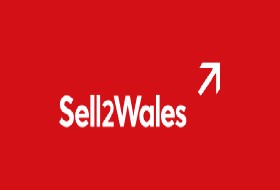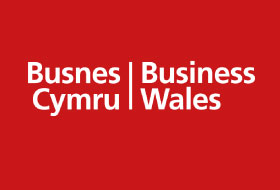Supplier Guide to Tendering
In this section
12. Procurement Glossary
We understand procurement can be confusing. Here’s an explanation of the terms we use:
Common Procurement Vocabulary Codes (CPV Codes)
Common Procurement Vocabulary Codes is a coding structure used in the classification of public sector contracts to find tender opportunities that relate to the products or service you provide quickly and easily. Suppliers will need to select the appropriate CPV codes that match the goods, works or services they provide. Both FTS and Sell2Wales use the CPV codes. A list of CPV codes are available on the Sell2Wales website during registration.
Contract
Any agreement (whether in writing) between the Authority and one or more other parties for:- • the sale of goods or materials; • the supply of goods or materials; • the execution of works • the provision of services (including accommodation and facilities).
Contract Management
Ensuring that the right contractual agreement for an organisation is established and managed in the most effective manner, enabling both parties to fully meet their obligations providing the right quality of service/product, on time, within budget and compliant with specification.
Contract Procedure Rules
These are our internal rules that apply for procurement activity below the UK Public Contracts thresholds. Their purpose is to ensure a system of openness, transparency and non-discrimination where accountability and probity of the procurement process will be beyond reproach.
Corporate Procurement Unit (CPU)
Procurement activity within the Council is regulated and overseen by the CPU by means of guidance, procedures, rules and regulations. Our aim is to seek best value for money on all goods, works and services bought by the Council and to ensure that all procurement is undertaken in an open, transparent and non-discriminatory manner.
Dynamic Purchasing System (DPS)
An electronic tool that is used to purchase goods, services and works. A DPS is similar to a framework but permits new suppliers to join at any time during the DPS, provided the supplier meets the selection criteria. A DPS has different processes to follow and we will be clear within tender documentation if we are using one of these agreements and will provide full guidance to suppliers.
E-tender Wales
Is used by us for the submission of all electronic tenders and some quotation. This is an electronic tendering portal which allows suppliers who are registered on the site to download tender documentation and submit their tender responses.
Find A Tender Service (FTS)
Information on public sector contract opportunities in the UK (over a certain monetary threshold) is published on the Find a Tender Service (FTS).
FTS is free to use and replaces the role of Tenders Electronic Daily, the Official Journal of the EU (OJEU/TED) for procurements in the UK. FTS works alongside existing procurement portals including Sell2Wales.
Framework
A framework agreement can have a number of suppliers under which we can “call-off” those goods and services at pre-agreed rates, at the appropriate time. Framework agreements set out the broad terms and conditions on which the call off contracts are based upon, framework agreements can have a single supplier or multiple suppliers and for a maximum duration of 4 years, as per the Public Contract Regulations 2015.
Instructions to Tenderers (ITT)
Instructions to be followed during the tender process, when the closing date is, how to submit a tender etc.
Lead Officer
The Lead Officer (LO) shall be responsible for the procurement process and following award will be the primary link between the Authority and the relevant supplier. The LO shall be responsible for the management of that contractual arrangement and ensuring that the price(s) paid is/are in accordance with the terms of the contract.
Light Touch Regime (LTR)
The new light-touch regime (LTR) is a specific set of rules for certain service contracts that tend to be of lower interest to cross-border competition. Those service contracts include certain social, health and education services, defined by Common Procurement Vocabulary (CPV) codes as outlined in Schedule 3 of the public Contracts Regulations (2015).
Lotting
Tenderers may be split into multiple Lots, this may be by geographical location or by a certain group of goods and services. You must ensure that you have the capacity to deliver all the Lots bid for. Wording will be included in the tender documentation if we are limiting the number of Lots that may be awarded to one supplier.
Mini competition
This is the process followed to place a call-off contract under a framework agreement where the best value supplier has not been specified in the original terms of the framework agreement. All suppliers within the original framework agreement are invited to submit bids against the original terms.
Most Economically Advantageous Tender (MEAT)
The tender that will bring the greatest benefit to the Authority having taken a number of factors into consideration, including quality and price.
National Procurement Service (NPS)
The National Procurement Service (NPS) for Wales, hosted by the Welsh Government, works collaboratively with public sector member organisations to set up collaborative arrangements in common and repetitive spend areas.
Procurement
This covers all activities that involve buying, purchasing, contracting, commissioning, sourcing or tendering – it is the whole process of acquisition, covering goods, works and services and capital projects – taking into account best value for money in terms of generating benefits not only to the organisations, but also to society, and the economy, whilst minimising damage to the environment.
PQQ (Pre-Qualification Questionnaire) / Selection Questionnaire
The PQQ/Selection Questionnaire asks specific questions to assess a tenderer's technical capability and financial standing. It is designed to give us all the information we need to assess whether a company is in a position to trade with us and can be awarded a contract, should the tender be successful.
Public Contract Regulations (2015)
This is legislation that Public Sector Organisations in the UK must adhere to when procuring goods, works and services over a certain value. They prescribe certain procedures and timescales we must adhere to.
Quotations
A quotation based on price and any other relevant matter, without the issue of a formal tender. Quotations are obtained up to the value of £75,000 in the Council. Certain processes must be followed by officers dependent on the value.
Sell2Wales
Sell2Wales is the Welsh Government Procurement Portal where all public sector contracts are advertised (in the case of our Council, we currently advertise all our procurement activity over the value of £25,000).
Sustainable Procurement
Is all about making better choices when buying goods, works and services. It is about value for money, not just price. It incorporates the use of sustainable development criteria in determining value for money by assessing the impact of economic, environmental and social factors where appropriate.
Standstill
This is a minimum time period for Tenders above the UK Public Procurement Threshold which must elapse between notification of an award decision and award of the contract. In the UK the standstill period is 10 days.
Supplier
A person or organisation that provides goods, works or service.
Supplier Qualification Information Database (SQuID)
A suite of standard selection stage/PQQ questions compiled by the Welsh Government. For tenderers the positive of the SQuID database is responses can be stored to standard questions and used again for future tenders or modified where necessary.
Tender
Any suppliers proposal submitted in response to an invitation to Tender.
Tender Evaluation Panels
A group of Officers appointed to undertake the tender evaluation exercise for a Contract or Framework. The group of officers in question remain constant throughout the process and must possess the necessary qualifications and/or expertise to advise on technical, procurement, legal, financial, policy and/or staffing aspects of the tender.
Tender Procedures
Under the UK Public Contracts Regulations certain procedures are prescribed which we must use for over threshold tenders:-
Open - All eligible applicants are invited to tender in a one-stage procurement process.
- Restricted - Only eligible applicants who meet the client authority’s criteria are invited to tender in a two-stage procurement process.
- Competitive procedure with negotiation - This allows the contracting authority flexibility around whether to negotiate - it is possible to reserve the right (by stating this in the Find a Tender service FTS) not to negotiate and to simply award the contract based on initial tenders submitted.
- Competitive Dialogue - Permits discussion of different options before choosing a particular solution. It can be used in complex contracts where technical solutions are difficult to define or where development of the best solution is wanted. This procedure contains more flexibility around negotiation with the winning bidder (provided this does not modify the essential aspects of the contract or procurement or amount to a distortion of competition).
- Innovative Partnership – This process allows for the R&D and purchase of a product or service within the same single procurement process (with transparency and other safeguards built into it).
- Negotiated procedure without prior publication – This procedure can only be used in narrowly defined circumstances, e.g. where no tenders, no suitable tenders or no suitable requests to participate were submitted in response to an open or restricted procedure, or where for technical or artistic reasons, or the protection or exclusive rights, the contract can only be carried out by a particular supplier. This process should only be used in exceptional cases.
TUPE
This refers to the Transfer of Undertakings (Protection of Employees) Regulations 2006. The purpose of TUPE is to protect employees if the business in which they are employed changes hands.





